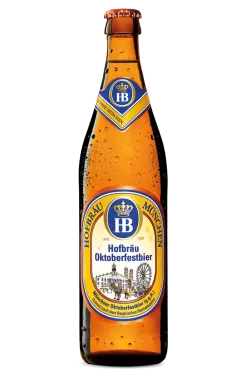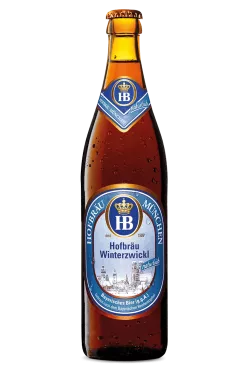Hofbräu München
When we think of Munich, we immediately think of the wonderful breweries. For beer aficionados, the state capital offers a wealth of options and moments of enjoyment - above all, of course, the annual Oktoberfest. A key player in this spectacle is Hofbräu München, which was already present at the very first Oktoberfest in 1810.
Inspired by a ducal beer mood
However, the Hofbräuhaus had been brewing beer much earlier: the brewery was founded in 1589. At that time, Duke Wilhelm V of Bavaria opened a brewery to meet the needs of his court with freshly brewed beer and to quench his own thirst for beer. He recruited a monk from the Geisenfeld monastery to manage production and built the brewery at the Alter Hof over the course of three years. Wilhelm's son took over the brewery a decade later and showed a good feel for the spirit of the times by adding wheat beer to the core range. His courage was rewarded with great success, which is why the brewery soon had to be expanded. The next stroke of genius was the distribution of the beer to Munich innkeepers: in order to be able to sell his brews to the general public, Duke Maximilian granted Munich innkeepers the right to serve his beer. That was in 1610 and four years later the world's first Maibock was brewed by Elias Pichler in the Hofbräu. Before the style spread like wildfire, only the Hofbräu was allowed to produce this brand new specialty for four years. In the centuries that followed, the Hofbräu first became the Royal Hofbräu and then the state brewery. Thanks to further expansion, the addition of a guest room and the annual serving at the Oktoberfest, the brewery established its good standing in Munich and survived the destruction of the Second World War despite massive bomb damage.
Hofbräu on tour: Munich, Las Vegas and Hamburg
Today, the brewery is on a stable footing and is no longer just known in and around Munich - there is even a faithful replica of the Munich Hofbräuhaus in the American metropolis of Las Vegas and a Hofbräuhaus in Hamburg! Despite all this success, the team has remained down to earth and uses its reach for good causes. They are committed to environmental protection and are trying to constantly reduce their own ecological footprint. However, the beer is the top priority and is produced to the highest standards: regional raw materials, gentle processing, long maturation times and compliance with the Bavarian Purity Law ensure that brews such as the Oktoberfest beer deliver outstanding taste.




